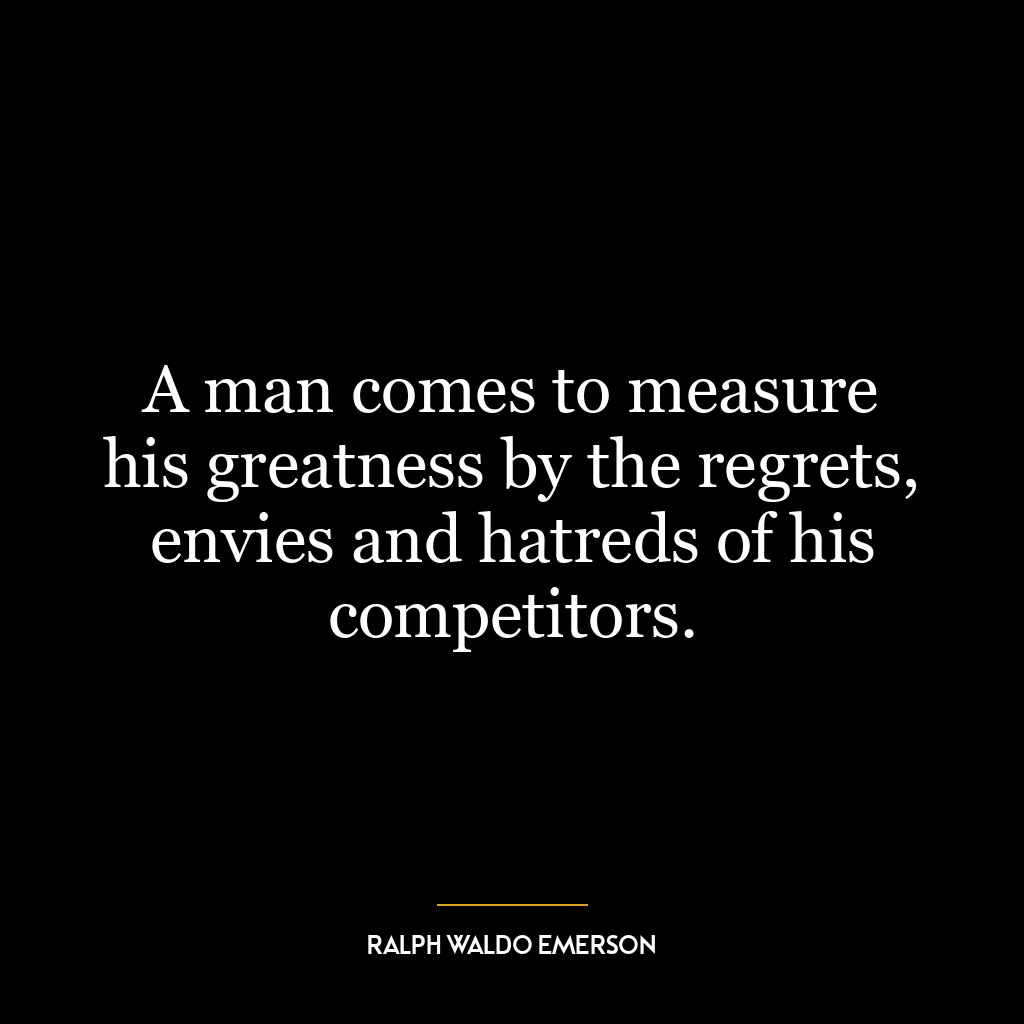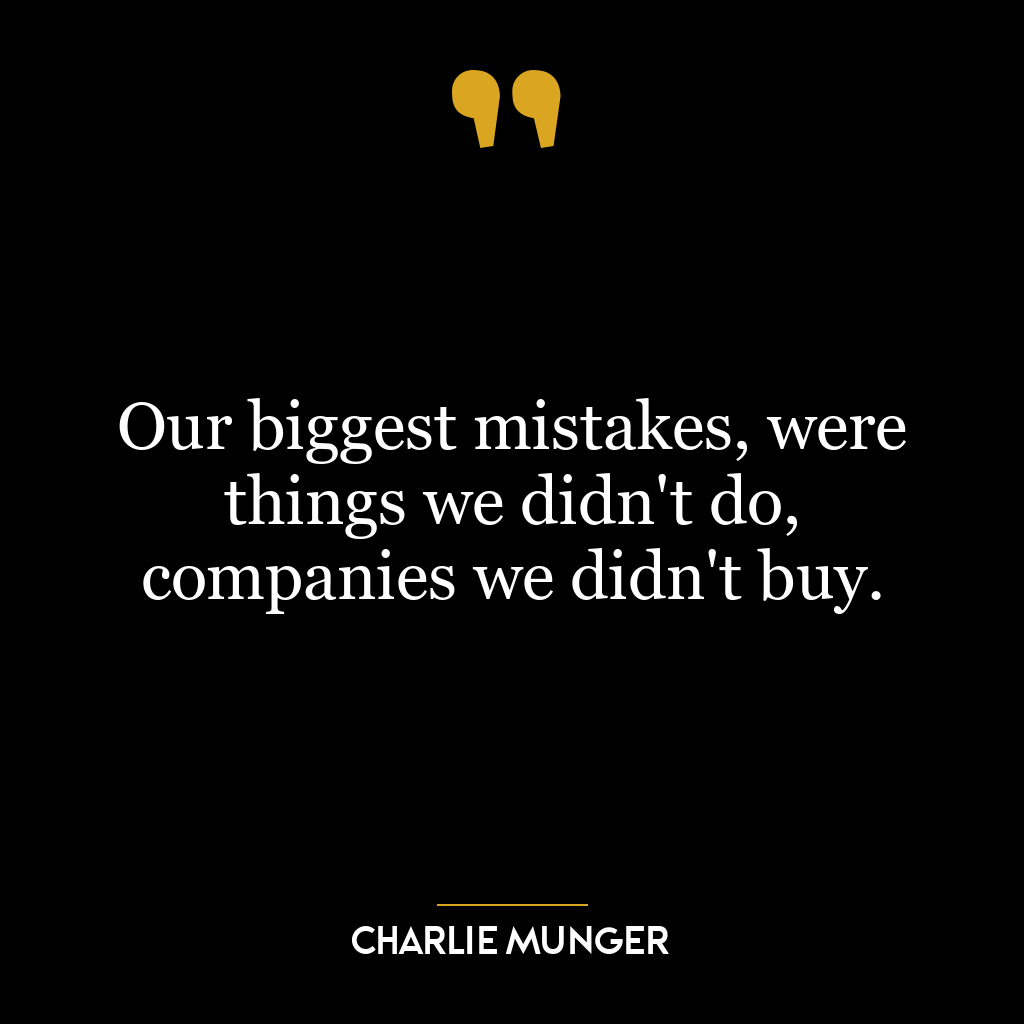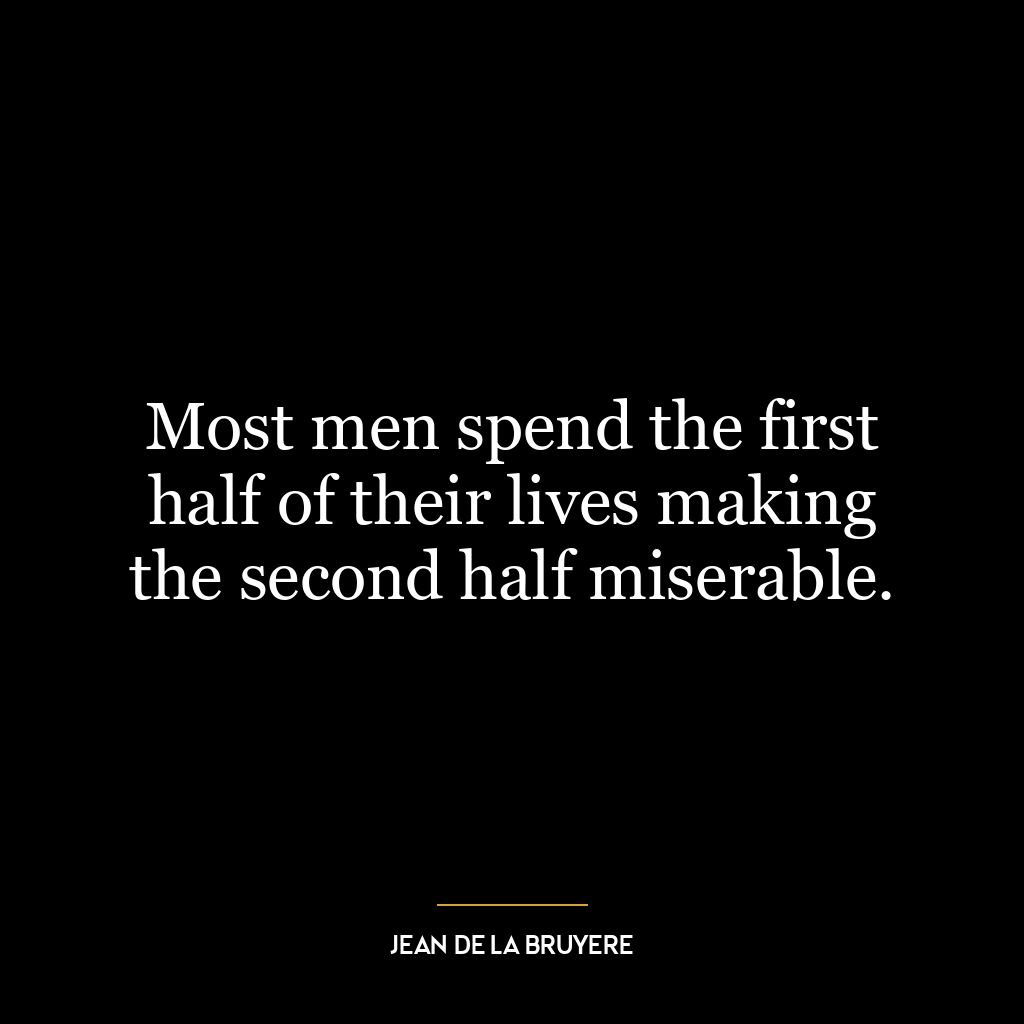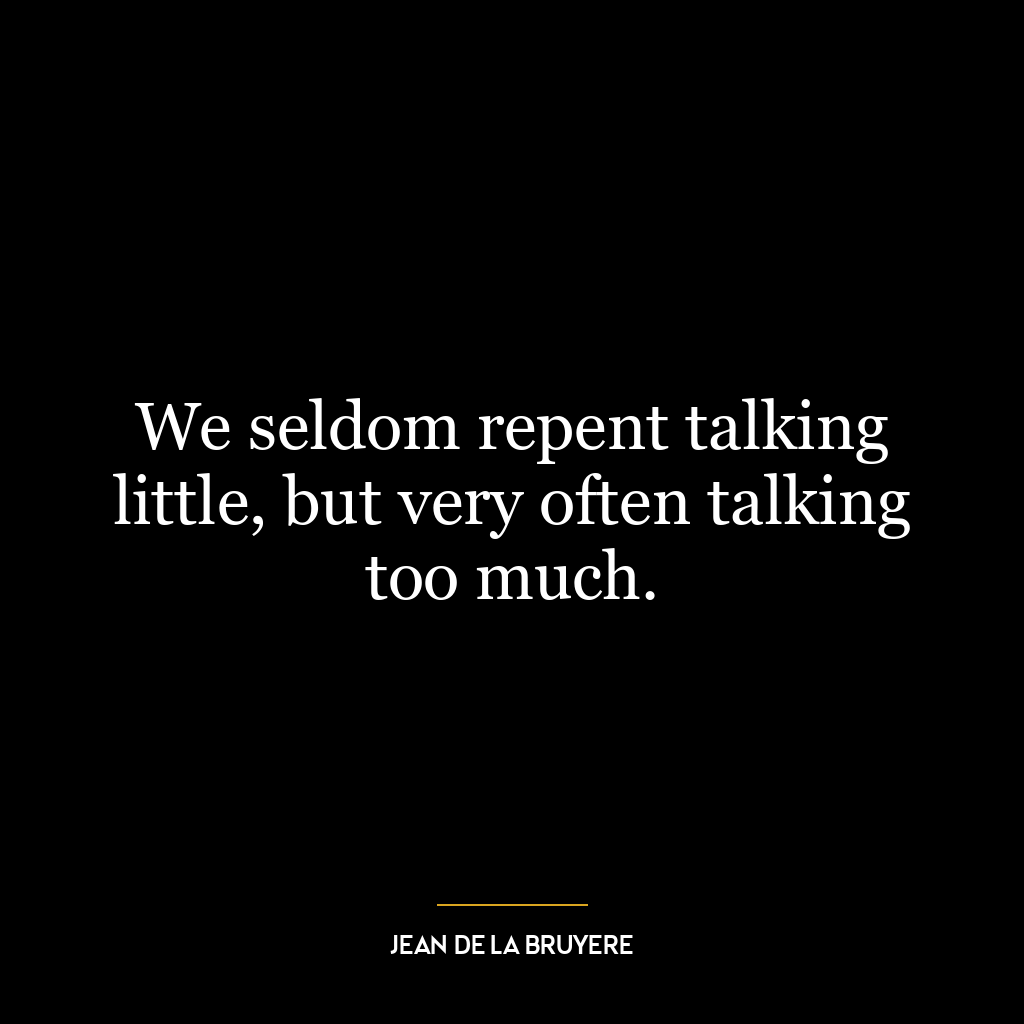A man comes to measure his greatness by the regrets, envies and hatreds of his competitors.
This quote suggests that a person’s greatness or success is often gauged not just by his accomplishments, but by the negative reactions they elicit from his competitors. The regrets, envies, and hatreds of his competitors serve as indirect measures of his success. If competitors regret not achieving what he has, envy his accomplishments, or harbor hatred due to his success, this indicates that he has achieved something noteworthy.
In essence, the quote is saying that success is often relative. It’s not merely about reaching a specific goal but about surpassing others. This perspective presents success as a competitive endeavor where one’s achievements are defined in relation to others.
In today’s world, this idea is very much alive and relevant. For instance, in the business world, a company’s success is often measured by its market share or its standing in relation to its competitors. If competitors are envious or express regret over not having a certain product, service, or market position that a company has, it is a clear indication of that company’s success.
On a personal development level, this quote might encourage individuals to strive for success that not only meets their personal goals but also surpasses the achievements of others. However, it’s important to remember that while competition can be a strong motivator, it should not be the sole driver of one’s actions. Ultimately, personal development should also be about self-improvement and personal satisfaction, not just outdoing others.
Moreover, this quote also serves as a reminder that success often comes with challenges, such as dealing with the negative reactions of others. It suggests that navigating these challenges is part of the journey to success.















